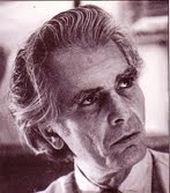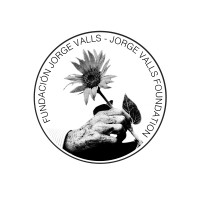
An analytical profile of the life and legacy of prominent Cuban intellectual Jorge Valls Arango (1933-2015) by historian Rafael Rojas, who will reconstruct Valls’ humanist philosophy through the vantage point of Valls’ lifelong civic activism, as well as through his writings, including his books, Donde estoy no hay luz y está enrejado, Veinte años y cuarenta días and Filo, contrafilo y punta. Valls’ philosophy, developed in good measure during his long periods of incarceration and exile–spanning fifty years of his adult life–is clearly marked by his experiencie as a young man after the triumph of the Cuban Revolution and by his opposition to the dictatorships of Fulgencio Batista and Fidel Castro in the decades of the 50’s and 60’s. Rojas will focus on Valls’ concept of human rights vis-a-vis liberal, Catholic and socialist traditions in modern political thought.
Rafael Rojas is a renowned scholar and writer of Latin America history. The author of more than 17 books and 100 scholarly essays, he has won numerous international awards, including the Premio Matías Romero (2001), the Anagrama Essay Award (2006), and the Premio Internacional de Ensayo Isabel Polanco (2009). He has also become one of the region’s most prominent public intellectuals. Last year alone he wrote two books titled, Historia minima de la Revolucion Cubana (El Colegio de México, 2015) and Fighting Over Fidel. The New York Intellectuals and the Cuban Revolution (Princeton University Press, 2016). He has taught and lectured widely, and teaches at the Centro de Investigación y Docencia Economicas/CIDE) in Mexico City. He is presently at Princeton University as a Global Scholar in the Department of Spanish and Portuguese Languages and Cultures, and the Program in Latin American Studies.
the Premio Internacional de Ensayo Isabel Polanco (2009). He has also become one of the region’s most prominent public intellectuals. Last year alone he wrote two books titled, Historia minima de la Revolucion Cubana (El Colegio de México, 2015) and Fighting Over Fidel. The New York Intellectuals and the Cuban Revolution (Princeton University Press, 2016). He has taught and lectured widely, and teaches at the Centro de Investigación y Docencia Economicas/CIDE) in Mexico City. He is presently at Princeton University as a Global Scholar in the Department of Spanish and Portuguese Languages and Cultures, and the Program in Latin American Studies.
This event will be conducted entirely in Spanish.
Welcoming remarks by María Luisa Pérez, president of the Jorge Valls Foundation.
BARUCH COLLEGE
25th Street, bet. Lexington and Third Aves., NYC
6th FLOOR: CONFERENCE ROOM 6-210
SPACE IS LIMITED
Free Admission
All who wish to attend must RSVP at: cccofny@aol.com
To be noted: Jorge Valls’ contribution to the Cuban Cultural Center of New York was substantial, playing a fundamental role in our mission to promote the work and legacy of José Martí, including his presentation on Martí ‘s concept of a republic at the 2003 annual conference of the CCCNY, as well as four seminars on Martí: “Ontología: el sentido de la realidad en Martí,” “El método martiano: conocimiento y práctica,” “La estética en Martí,” and “El proyecto transcendental de Martí.”
This event is co-sponsored by the Jorge Valls Foundation

And is presented in collaboration with the
Department of Modern Languages and Comparative Literature and
the Department of Black and Latino Studies of Baruch College at CUNY

With the promotional cooperation of
 and
and 